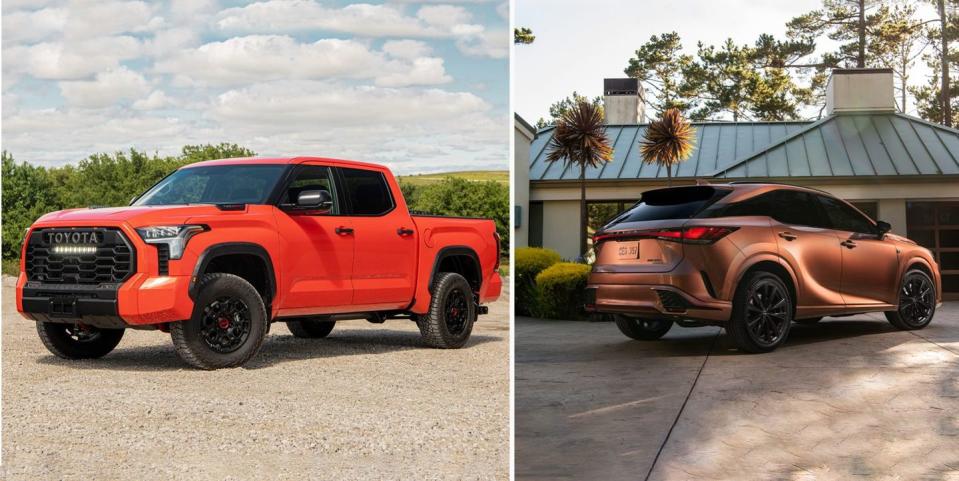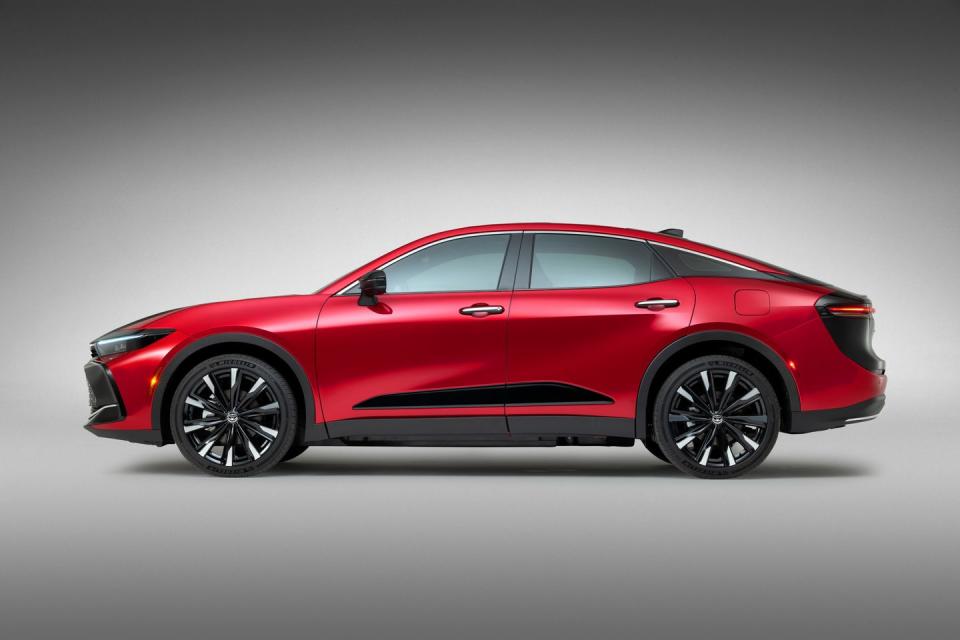Still Bullish on Hybrids, Will Toyota Leapfrog EV Tech with Solid State?

Just as GM and Ford have left behind hybrid power for EVs, Toyota could potentially leapfrog those “conventional” EVs with a solid-state battery platform.
Toyota’s philosophy that the best way to cut carbon emissions is by a mix of EVs with more affordable hybrids and plug-in hybrids has been restated for years.
The automaker is working with suppliers to meet sourcing requirements to qualify its vehicles for the Inflation Reduction Act’s battery tax subsidies.
Toyota remains dedicated to a hybrid/plug-in hybrid/EV mix over a total commitment to battery-electrics, even as Koji Sato prepares to replace scion Akio Toyoda as the automaker’s chief executive.
“We’re not expecting a change,” Chris Reynolds, executive vice president of corporate resources and chief administrative officer, said Monday in a Toyota Motor North America roundtable discussion with journalists. “What Akio has been talking about is the same portfolio approach that Sato will pursue.”
Misplaced presumption of a new strategy is the result of media coverage of the personnel change, announced in January (Toyoda, grandson of the automaker’s founder, will become chairman), Reynolds said, adding that any portfolio changes will happen “at the margins.”
Toyota’s philosophy that the best way to cut carbon emissions is by a mix of EVs with more affordable hybrids and plug-in hybrids has been restated for years, even as competitors like General Motors and Ford Motor Co. aggressively expand battery-electric vehicle offerings. Critics who lauded Toyota’s aggressive Prius marketing a generation ago have since moved on to dead-zero emissions EVs.
Upon announcement of the chief executive change, The New York Times noted that Toyoda has been an EV skeptic. Meanwhile, Lexus under Sato had pledged it will sell nothing but BEVs globally by 2035.
There is some hope for those critics and former fans impatient for a post-Prius Toyota. The Lexus LF-30 unveiled at the 2019 Tokyo Motor Show was described as a “solid-state” EV (though as a concept there was nothing under the “hood”), and Toyota was reportedly planning to reveal working solid-state prototypes at the 2020 Tokyo Olympics, until the sporting event was interrupted by the COVID-19 pandemic.
“It’s something that we continue to invest in significantly for our future, and we think it will be the key to unlocking more range from a battery,” said Jack Hollis, executive vice president of Toyota Motor North America and president of Toyota Motor Sales. Toyota is investing a lot of money into the technology, he said. Just as GM and Ford have left behind hybrid power for EVs, Toyota could potentially leapfrog those “conventional” EVs with a solid-state battery platform.
Meanwhile, Toyota is building a $5.6 billion battery factory for hybrids and for EVs in North Carolina, scheduled to begin production in 2025—focusing on lithium-ion rather than solid-state batteries. The automaker is working with suppliers to meet sourcing requirements to qualify its vehicles for the Inflation Reduction Act’s battery tax subsidies, said Robert Young, group vice president for purchasing and supplier development. The US Treasury Department is scheduled to release those rules on Friday, March 31.

Toyota and Lexus are selling everything they can build, which is keeping dealerships happy in what remains a sellers’ market. In 2022, the company sold about 2.1 million vehicles (good enough to outpace Ford for second place in the US, though down from first place in 2021), and Toyota both started and finished the year with about 30,000 vehicles in inventory, Hollis said.
Toyota dealers have about five days’ supply, and Lexus has about 10 days’ supply, he said—not only well below the pre-pandemic industry norm of about 80 days’ supply, but also lowest of any mainstream commodity or luxury brand. As all automakers allocate supply chain shortage-ravaged parts, especially computer chips, “Our goal is to maximize the profitability and volume with the most efficient use of those microchips,” Hollis said.
Toyota’s average transaction price is currently just below $40,000, compared with a US industry average of about $49,000. The persistent supply chain shortages will continue to mean demand far outstrips supply, to the detriment of middle-class consumers.
“I’m not going to predict anything, but do I see it going to $50,000? Yes,” Hollis said. “How far it goes into the $50s? I don’t know.”
Is Toyota smart to continue embracing hybrids and plug-in hybrids, instead of committing totally to all-electric vehicles? Please comment below.

 Yahoo Autos
Yahoo Autos 